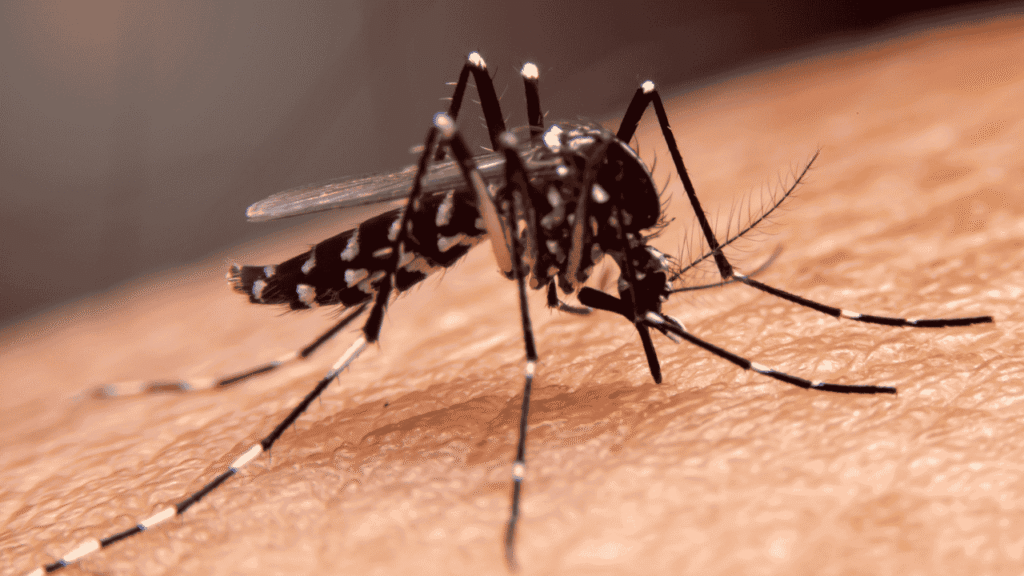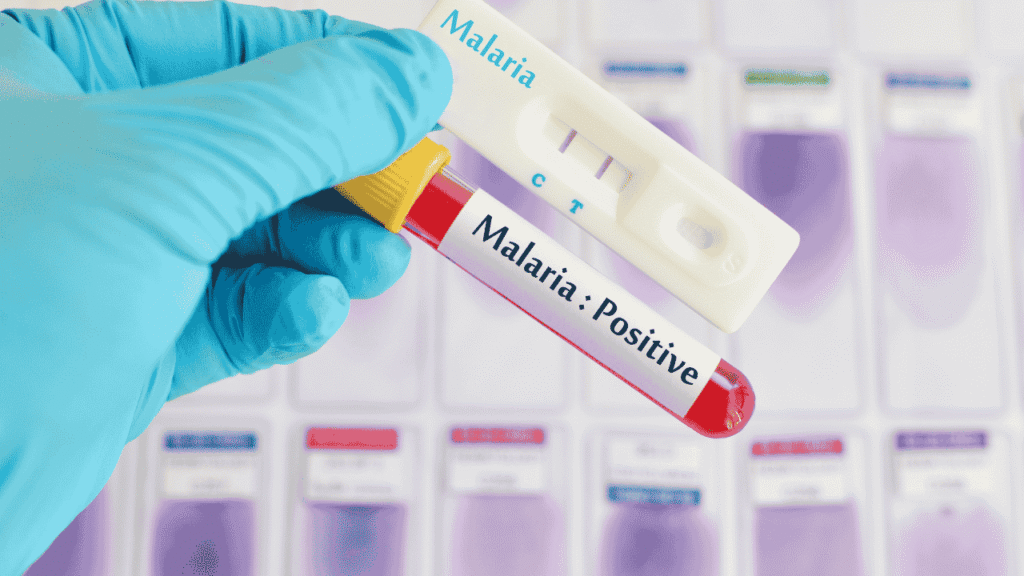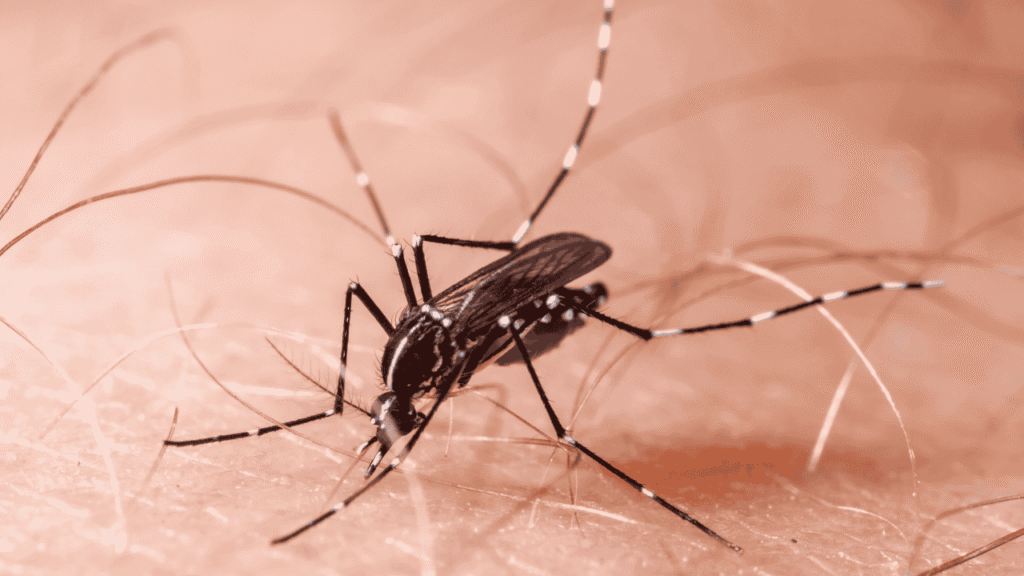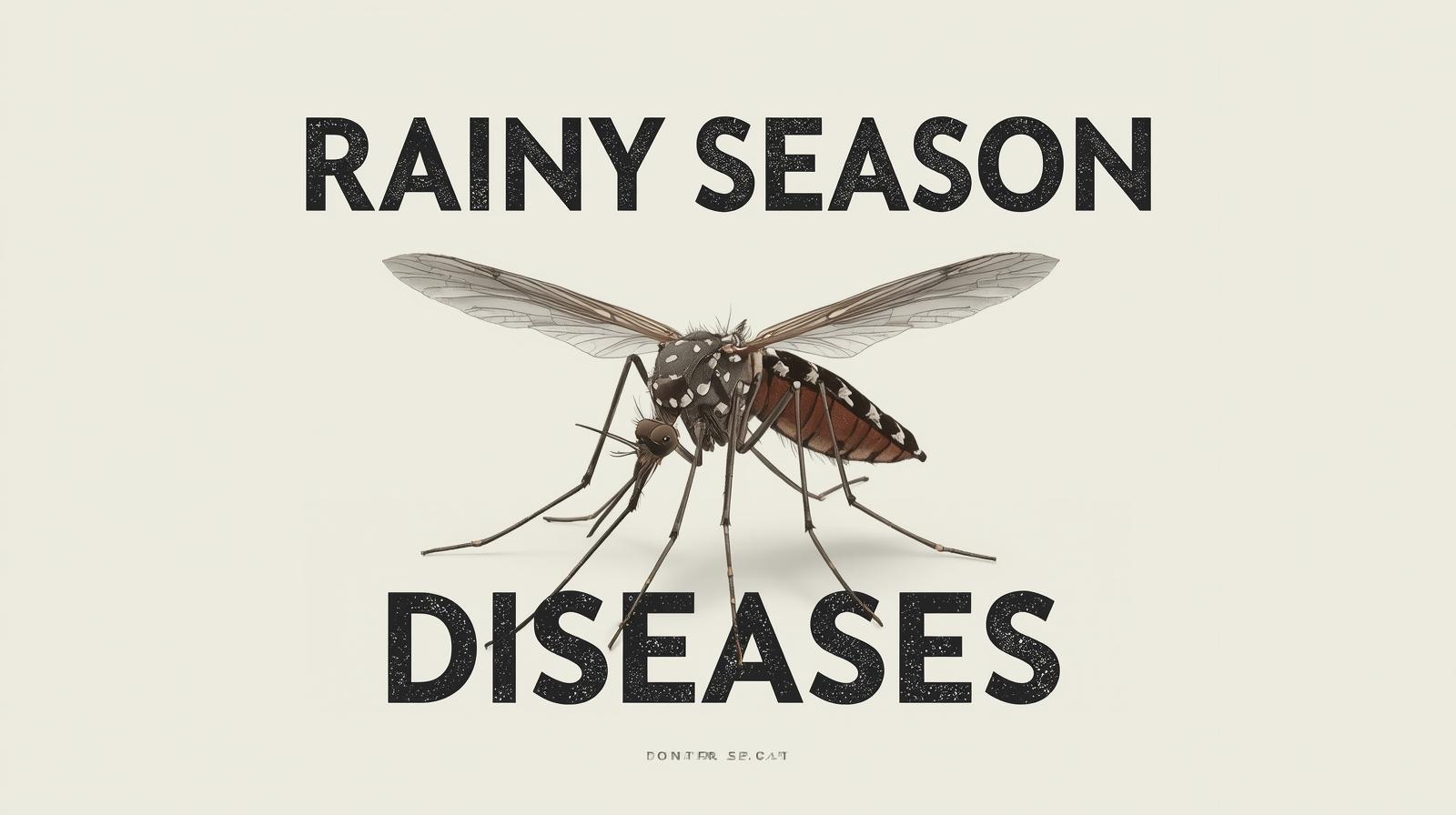Introduction
Monsoon season comes after summer which gives us relief from the heat. But, it can also cause an increase in infectious diseases. This is because stagnant water is common during the rainy season. Poor sanitation in this season can also lead to more cases of water-borne illnesses.
People often get high fever, nasal congestion, and stomach pain during this time. The best way to keep your family safe is to know about these diseases.
If you want to read other blog about Top 8 Food Items You Can try to Eat in Rainy Season
You should practice regular hygiene to stay healthy in the monsoon season. This is how you and your family can stay well, even when there are chances of getting sick during the rainy season.
Common Rainy Season Diseases
The rainy season often leads to more sickness, especially in India. When there is a heavy monsoon, it can be hard to keep things clean and water safe. Because of this, there is a higher chance of getting sick from mosquito bites and from germs found in dirty water.
A big part of this problem is that many people get diseases like dengue, malaria, and leptospirosis. On top of that, water-borne diseases such as typhoid and cholera also trouble people in these areas during the monsoon season.
To stay healthy and to keep others safe, you need to know about these illnesses. By taking good preventive measures, you can lower the risk during this time. This way, all of us can have a healthier and safer monsoon season.
1. Dengue: Understanding and Prevention
Dengue fever is a sickness that comes from the Aedes aegypti mosquito. This mosquito has black-and-white stripes, so it is easy to know.
Dengue fever is common in India during the monsoon season. The mosquitoes often bite in the early morning and in the late evening.

You can get a high fever, feel tired, get swollen lymph nodes, or notice a rash on your skin. If you see these signs, it is important to get immediate medical attention.
Treatment is to help you feel better by managing the symptoms. It is good to drink plenty of water, get rest, and use paracetamol if you have a fever.
Do not use aspirin, because it can make any bleeding worse. If your condition gets worse, the doctors will check your platelets and may keep you in the hospital.
Stopping dengue before it starts is very important. You need to get rid of stagnant water in pots or any unused containers.
This is because mosquitoes like to lay eggs in water that does not move. You should also use mosquito nets, put on repellent, and wear long-sleeve clothes.
The mosquitoes that carry dengue bite mostly during the day. So, you have to protect yourself at all times when you are out or even inside, to keep safe from them.
2. Malaria: Key Symptoms and Safety Measures
Malaria is an illness that you can get when a female Anopheles mosquito bites you. During the monsoon seasons Malaria is one of the most common problem.
This happens because water collects in many areas at this time and makes it easy for mosquito breeding. The main things to look for are fever that comes and goes, chills, and sweating.
If you do not get help soon, you can get very sick with liver problems or a type called cerebral malaria.
Doctors use diagnostic tests to check if someone has malaria. Rapid diagnostic tests and looking at blood under a microscope help them find malaria fast.

The main way to treat this illness is with antimalarial medications. The doctor will pick the right medicine based on which parasite is found in the blood. It is also very important to drink water and watch your symptoms every day so you can get better.
There are some good ways to help stop getting malaria. One way is to sleep under mosquito nets that have insecticides on them. You should also put on repellent.
Wear clothes that cover your skin when you go out, mostly at night. Try to get rid of stagnant water near the house, so mosquitoes do not have spots to lay eggs. In places where there is a higher risk for malaria, you can take antimalarial drugs. This can make it less likely for you to get sick.
3. Chikungunya: Diagnosis and Preventive Strategies
Chikungunya is a viral disease that you can get from a mosquito bite during the rainy season. Aedes mosquitoes spread this illness.
If you get chikungunya, you may feel a high fever and have bad joint pain. These can go on for weeks or even months. Some people also have muscle pain and a rash. If you see these signs, you should get medical attention.

There is no one treatment that can fully fix this sickness, but you can do some things to feel better. Do not use NSAIDs, because these can cause bleeding. If the pain does not get better, you need to see a doctor.
The best way to stop chikungunya is to stay away from mosquito bites. Keep your place clean and clear of things where mosquitoes can grow. Use mosquito repellents often. It helps to put screens on your windows, too. Doing all these things can really lower the chance of getting this infection.
4. Leptospirosis: Risks and Protection
Leptospirosis is a bacterial infection that comes from water or mud that has urine from sick animals in it. It is most common during floods and monsoon season.
If you get this disease, you might have high fever and muscle pain. Sometimes, your skin can turn yellow if it gets worse. If you do not get proper care, leptospirosis can hurt your kidney or liver.
The doctor can find out for sure if you have it by doing a blood test or a urine test. Medicines like doxycycline work well to help treat this. It is also good to get plenty of rest and drink lots of water to help you get better.
To stop the infection, you should wear boots and gloves if you need to go out into floods. Do not touch flood water with your bare hands or feet. Always wash your hands well and practice good hygiene. Keeping rats and mice away from your home also lowers the risk of getting this disease.
5. Typhoid: Prevention Through Hygiene
Typhoid fever caused by bacteria Salmonella typhi The disease spreads when people drink contaminated water or eat food that is not clean.
This is most common in the monsoon season. When you have typhoid fever, you might get a fever that does not go away. You may feel abdominal pain and have loss of appetite.
If you notice these signs, you need to get proper medication and see a doctor soon. A doctor can use blood cultures or stool samples to know if you have typhoid fever.

When someone has typhoid fever, doctors often give antibiotics like ciprofloxacin to help the person get better.
The person also needs to eat soft foods that are easy for the body to use. It is very important to drink lots of water so that you do not get dehydrated. If you do not get treated for typhoid fever, it can lead to serious issues, such as holes in the intestines.
The best way to keep away from typhoid fever is to practice good hygiene. In a Monsoon season drink boiled water. Wash your hands with soap many times a day.
It is also important not to eat any raw food. Vaccines can help people who live in places where typhoid fever is more common.
6. Cholera: Treatment and Avoidance Tips
Cholera are highly spread in Monsoon season. The disease spreads when people eat food or drink water that is dirty or not safe.
The main signs to look for are heavy diarrhoea, which people call “rice-water stools”, rapid heart rate, and fast loss of fluids from the body. Because of this, it is important to give rehydration right away.
The first thing to do for cholera is to give Oral Rehydration Solutions (ORS). If a person is very sick, they may also need fluids through a vein.
Doctors sometimes give antibiotics, like doxycycline, to help the person recover. Giving children zinc can help their diarrhoea stop faster.
To help stop cholera, people need to use clean water and eat safe food. You should always be sure that the water you drink is boiled or filtered. Wash your hands often, as this can help keep you safe. In areas where cholera is found more, getting a vaccine can give you extra protection.
7. Gastroenteritis: Causes and Prevention
Gastroenteritis, or stomach flu, tends to get worse during the monsoon season. This is often because of poor sanitation and eating dirty food. You may have diarrhoea, feel sick, or have pain in your stomach. These signs can get worse if you do not drink enough water.
To feel better, you need to drink a lot of water. You can use ORS or coconut water for this. Try to eat easy foods like plain rice or bananas.
To keep away the stomach flu, it is good to stay clean. You should wash your hands well. Do not eat food that someone sells on the street. Only eat food that is made fresh. If you practice these habits every day, you lower your risk of getting the illness from poor sanitation.
8. Hepatitis A and E: Symptoms and Precautions
Hepatitis A and E are infections that affect the liver. They can happen when you eat or drink food or water that is not clean.
This can get worse in the monsoon, as there is more food contamination at that time. Some signs to look for are dark urine, pain in the belly, and yellow skin, which is known as jaundice. If you notice any of these signs, you should go see a doctor right away.
A blood test can show if you have the infection. There is not an antiviral medicine for this illness right now. It is good to drink enough water and keep your fluid intake up.
Eating a balanced diet is also important. Most people get better with time, rest, and proper care.
To stop these problems, practice good hygiene. Wash your hands often and eat food that is cooked well. Getting the hepatitis A shot is also a good step. This is important if you live in or visit places where the risk is high.
9. Conjunctivitis: Recognizing and Preventing
Conjunctivitis, also called “pink eye,” is a problem that can show up in the rainy season. It can be a bacterial infection or a virus.
This issue can spread to other people very fast. Signs of pink eye or red eyes, itching, and watery eyes. You might also feel a sore throat or have a fever when you get this.

You can help get rid of a bacterial infection that causes pink eye with antibiotic eye drops. Viral conjunctivitis is different.
It is very important to keep everything clean and to not rub your eyes. This way, you do not make the spread of infection worse and it helps to stop it from getting to other people.
To keep the infection from spreading, you need to wash your hands a lot. Do not use towels or other things with other people. Wipe down things you or others touch often. These easy steps help keep you, your family, and others safe from the infection.
10. Respiratory Infections: Coping and Care in the Monsoon
Respiratory illnesses, like the common cold and flu, are very common when the weather changes during monsoon season.
Signs like nasal congestion, chills, and body aches show that the body’s immunity is low. These signs can sometimes turn into more severe symptoms, so it is important to take care of your health during this time.
To feel better, you need to get a lot of rest and have warm drinks. Many people also take medicines like antihistamines to feel better. Breathing in steam and doing saltwater gargles can help with nasal congestion and make your throat feel good.
To not get sick, you can take some simple preventive measures. Get your flu vaccination every year. Wash your hands often. Eat good food so your body can fight germs. These steps help you stay safe from getting these infections again.
Conclusion
As the monsoon comes Rainy Season Diseases spread all around, you need to know about the diseases that show up at this time. There are several, like dengue and breathing infections. Each one can bring its own problems and risks.
When you learn about these diseases and follow tips in this blog, you can help keep yourself and your loved ones safe. This can lower the chances of getting sick when there is rain.
If you want more advice or help about your health, you can have a free talk with our experts. Your health means so much to us.


1 thought on “10 Common Rainy Season Diseases and Prevention Tips”